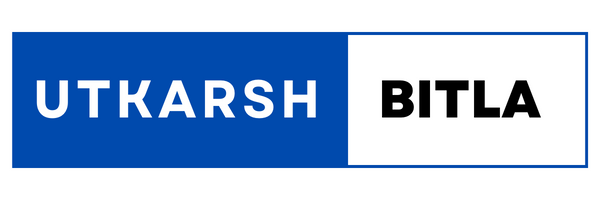Blockchain in Agriculture
The global economy
depends heavily on the agricultural sector, which produces food and the raw
resources needed to power other businesses. Technology has advanced quickly in
recent years, and blockchain is one ground-breaking innovation that is having a
significant impact on the agricultural industry. The decentralized and
distributed ledger technology known as blockchain, which powers
cryptocurrencies like Bitcoin, is revolutionizing agriculture. We'll explore
the nuances of blockchain technology's application to agriculture in this blog
post, along with its many advantages.
Comprehending Blockchain
Technology
A blockchain is
essentially a decentralized, tamper-resistant ledger that keeps track of
transactions via a network of computers. Every transaction is compiled into a
"block," and the blockchain is made up of these blocks connected
chronologically. The technology's decentralized structure guarantees
immutability, security, and transparency.
How Agriculture Uses
Blockchain Technology:
Supply Chain Traceability:
Improving
supply chain traceability is one of blockchain's main uses in agriculture.
Every stage of the supply chain, from farming and seed production to
processing, packing, and distribution, can be tracked and validated using
blockchain technology. By enabling customers to track the product's origin,
this transparency promotes food safety and quality control.
Smart Contracts:
Another useful use of blockchain in agriculture is smart contracts, which are
self-executing agreements with the conditions of the contract explicitly
encoded into the code. Numerous procedures, including payments, quality
assurance, and delivery schedules, can be automated via these contracts. When
certain requirements are fulfilled, farmers can get money automatically, cutting
out the middlemen and simplifying processes.
Data Management:
Blockchain makes it possible for agribusiness to manage data safely and
effectively. On a blockchain, farmers may manage and store important data like
crop yields, weather, and soil quality. Relevant parties, such as suppliers,
academics, and farmers, can access this data, promoting cooperation and
data-driven decision-making.
Financing and
Tokenization: Agricultural assets can be tokenized
using blockchain, which enables farmers to tokenize their land, crops, or even
future harvests. By enabling trading on blockchain-based platforms, these
tokens open up new funding options for farmers. Small-scale farmers may find it
easier to obtain cash and become more economically viable with this
decentralized financing model.
Minimizing Fraud and
Counterfeiting: The agriculture industry may fight fraud
and counterfeiting by utilizing the immutability and transparency of blockchain
technology. In agriculture, fake pesticides, seeds, and other inputs can be a
big problem. By utilizing blockchain technology, all transactions and product
transfers can be authenticated, guaranteeing farmers receive real and
high-quality inputs.
Transparency: A
transparent and unchangeable record of each transaction in the supply chain is
provided by blockchain technology. The agriculture industry's credibility is
increased as a result of this transparency, which increases confidence among
stakeholders and customers.
Effectiveness and
Economical Benefits: Enhanced productivity and reduced
expenses are achieved through process simplification and automation via smart
contracts. Processes can become quicker and more economical when middlemen are
eliminated from the transaction process.
Enhanced Traceability:
End-to-end supply chain traceability is guaranteed by blockchain technology. If
there is a problem with food safety, it can be swiftly determined exactly where
it originated, which lessens the effect on customers and the industry.
Decentralization:
Since blockchain technology is decentralized, there is no longer a need for a
central authority, which lowers the possibility of fraud, corruption, and
manipulation. This is especially helpful for small-scale farmers, who can find
it difficult to work with centralized systems.
Finance Accessible:
Using decentralized platforms, tokenization enables farmers to access funding
by unlocking the value of their holdings. For farmers who have historically had
difficulty obtaining loans from conventional banking institutions, this might
be a game-changer.
Obstacles and Prospects
for the Future:
Although blockchain has
many benefits, there are obstacles to its use in agriculture. It is necessary
to address issues like compatibility, scalability, and implementation costs at
first. However, these difficulties should become less significant as awareness
and technology develop.
In summary, blockchain is
transforming the agriculture industry by offering creative answers to
persistent problems. The potential uses of blockchain in agriculture are
numerous, ranging from transparent transactions and supply chain traceability
to decentralized finance. The way we produce, distribute, and consume
agricultural products will likely undergo even more radical shifts as
technology advances. It's true that the blockchain is writing the future of
agriculture.



